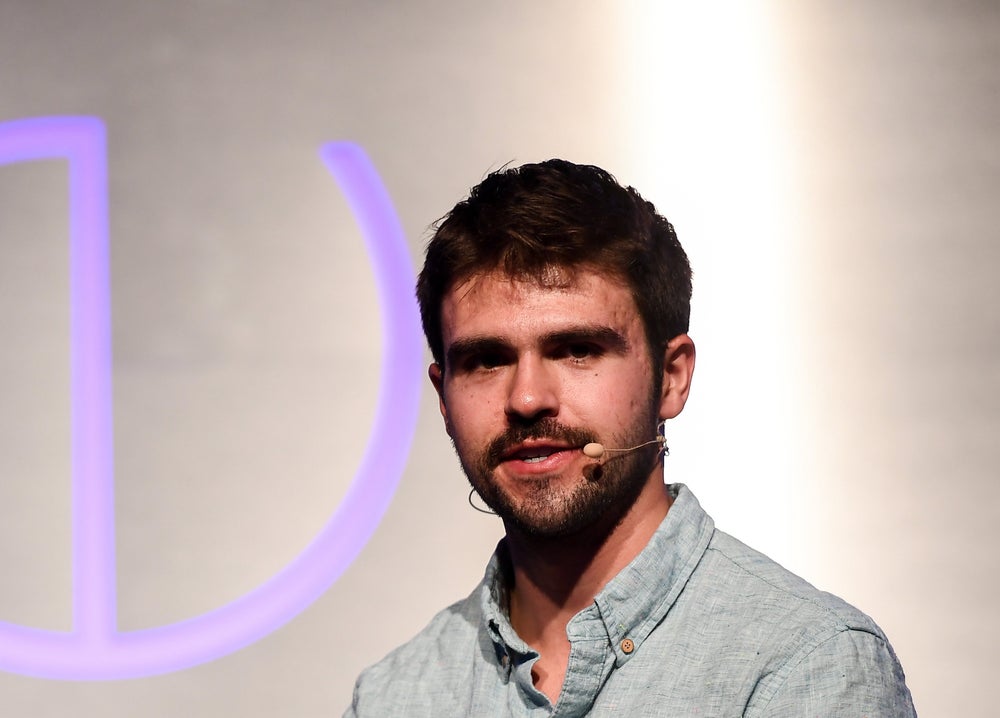When engineer and MIT graduate Calvin French-Owen joined OpenAI in May 2024, the startup had around 1,000 employees. A year later, OpenAI’s workforce had tripled to 3,000 employees, and French-Owen was in the top 30% by tenure.
In a blog post published Tuesday, French-Owen detailed what it was like to work for the ChatGPT-maker for a little over a year, from May 2024 to June 2025. He quit OpenAI three weeks ago, stating that there was no “personal drama” behind his decision, but that he was simply “craving a fresh start.”
Related: OpenAI Is Creating AI to Do ‘All the Things That Software Engineers Hate to Do’
While at OpenAI, French-Owen worked on Codex, a coding assistant released in May that competes with AI coding tools like Cursor and Anthropic’s Claude Code. He described in his blog post that his team of eight engineers, four researchers, two designers, two go-to-market managers, and one project manager created Codex in just seven weeks. They worked most nights until 11 p.m. or midnight and came into the office on weekends to complete the project.
“It’s hard to overstate how incredible this level of pace was,” French-Owen wrote. “I haven’t seen organizations large or small go from an idea to a fully launched + freely available product in such a short window.”
He added later that Codex had reached 630,000 engineers in less than two months since launch.
“I’m not sure I’ve ever worked on something so impactful in my life,” French-Owen wrote.
 Calvin French-Owen. Photo By Harry Murphy/Sportsfile for Web Summit via Getty Images
Calvin French-Owen. Photo By Harry Murphy/Sportsfile for Web Summit via Getty Images
One “unusual” aspect of OpenAI, which French-Owen emphasized in his blog post, was that “there is no email,” and nearly all communication happens on the workplace messaging platform Slack. He estimated that he received about 10 emails in his entire time at the company.
Related: OpenAI Executives Look For These 3 Key Traits in New Hires: ‘It’s Actually My Advice to Students’
French-Owen also stated that there’s a strong bias for action at OpenAI, meaning that staff are encouraged to have good ideas and act on them. He characterized the startup as extremely meritocratic, promoting employees based on their ability to have the best ideas instead of their ability to present at meetings or play political games.
French-Owen found OpenAI to be “a very secretive place” as well as “a more serious place than you might expect.” The startup prohibited him from telling anyone what he was working on in detail, and it felt as though the stakes were high for the company to build a product used by 500 million global weekly users.
French-Owen also wrote that when it comes to engineering personnel, there is a “very significant” Meta to OpenAI pipeline. He pointed out that OpenAI is similar to Meta in its early days, with a top-performing consumer app and “a desire to move really quickly.”
Before joining OpenAI, French-Owen was previously a co-founder of data startup Segment, which Twilio bought for $3.2 billion in 2020.
Meta has been hiring talent from OpenAI, too. Meta recently poached top OpenAI researchers, including ChatGPT co-creator Shengjia Zhao and ChatGPT voice mode co-creator Shuchao Bi, with pay packages reportedly in the nine figures. OpenAI Chief Research Officer Mark Chen indicated last month in a leaked Slack message that the company is rethinking compensation in response to the poaching.
OpenAI raised $40 billion in March at a valuation of $300 billion, the biggest private tech deal ever recorded.
Join top CEOs, founders and operators at the Level Up conference to unlock strategies for scaling your business, boosting revenue and building sustainable success.
When engineer and MIT graduate Calvin French-Owen joined OpenAI in May 2024, the startup had around 1,000 employees. A year later, OpenAI’s workforce had tripled to 3,000 employees, and French-Owen was in the top 30% by tenure.
In a blog post published Tuesday, French-Owen detailed what it was like to work for the ChatGPT-maker for a little over a year, from May 2024 to June 2025. He quit OpenAI three weeks ago, stating that there was no “personal drama” behind his decision, but that he was simply “craving a fresh start.”
Related: OpenAI Is Creating AI to Do ‘All the Things That Software Engineers Hate to Do’
The rest of this article is locked.
Join Entrepreneur+ today for access.

